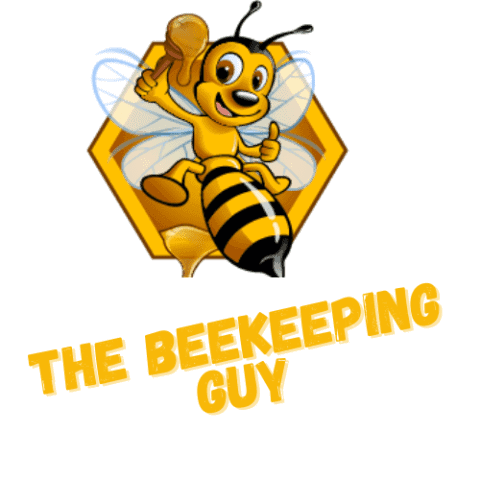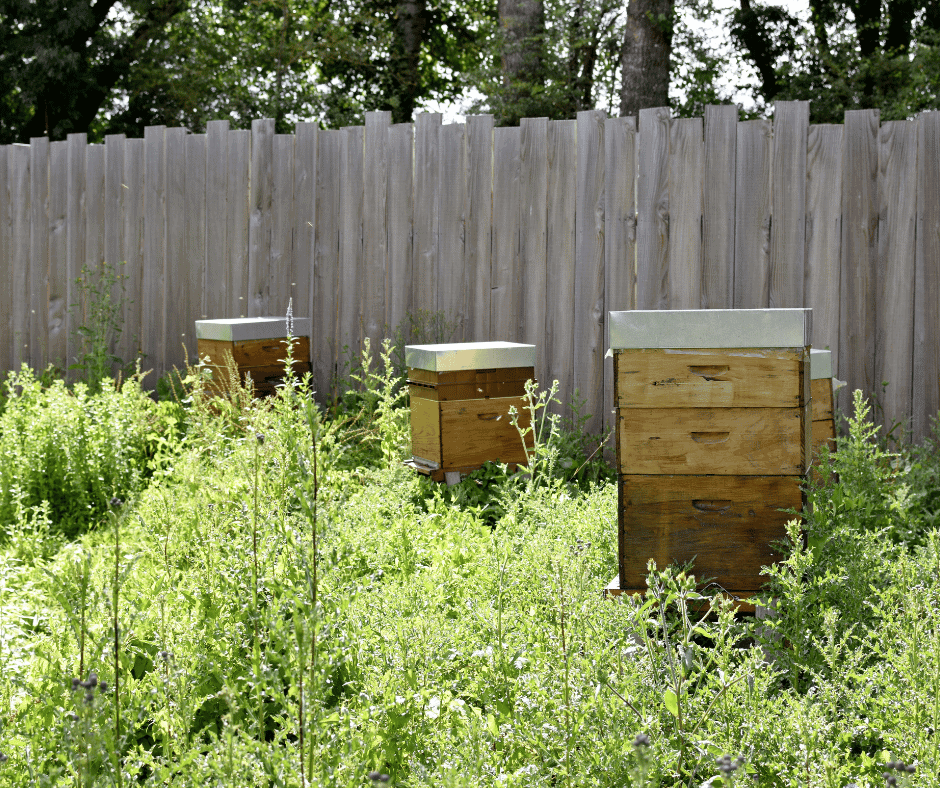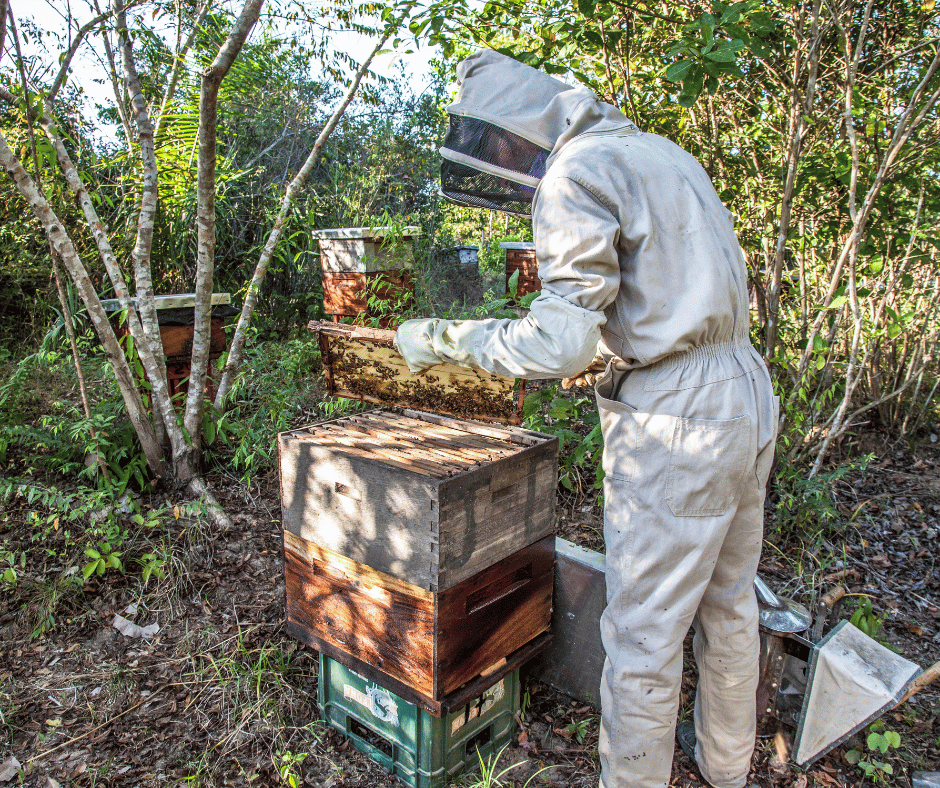
One of the common questions that people ask before starting beekeeping is “how hard is it to keep bees?”. Keeping bees is a fascinating and rewarding hobby that has been practiced for centuries.
But it is not a task to be taken lightly. It requires a certain level of commitment, knowledge, and skill. Not only do bees play an important role in pollinating plants and increasing crop yields, but they also produce delicious honey and beeswax.
Many people are drawn to beekeeping for the opportunity to connect with nature, learn about the behavior of these fascinating insects, and contribute to the preservation of the species.
When considering starting a beekeeping hobby, it is important to understand that it requires effort and dedication. This article will provide an overview of what is involved in keeping bees, including the basic requirements, challenges, and tips for success.
Before diving in, it is also important to note that laws and regulations regarding beekeeping may vary depending on location. It is advisable to check with local authorities to ensure compliance with any specific regulations or guidelines in your area.
So, whether you are interested in producing your own honey, want to help preserve the bee population, or simply want to learn about these fascinating insects, this article will provide a comprehensive introduction to the hobby of beekeeping and will answer the question of “how hard is it to keep bees?.
Table of Contents
Basic Requirements For Keeping Bees

Before starting a beekeeping venture, it is important to understand the basic requirements for keeping bees. These include the necessary equipment, space requirements, and knowledge and skill requirements.
Equipment:
The first and most important equipment you will need is a hive. There are different types of hives available, such as Langstroth, Top Bar, and Warre hives, each with its own advantages and disadvantages. Langstroth hives are the most common and widely used and are known for their durability and ease of use.
Protective gear, such as a bee suit or veil, is also a must-have to protect yourself from bee stings. Other equipment that you will need includes a hive tool for opening and manipulating the hive, a smoker for calming the bees, and a honey extractor for removing the honey from the combs.
Space requirements:
Bees need a suitable location to establish their colony. The location should have access to an adequate source of nectar and pollen and should be protected from strong winds and direct sunlight. A typical bee colony can be kept in an area as small as a backyard, but larger spaces like an orchard or meadow can provide more resources for bees and can lead to a more productive colony.
Knowledge and skill requirements:
To keep bees successfully, it is important to have a basic understanding of bee behavior, their life cycle, and how to identify and treat common diseases. This knowledge can be acquired through books, websites, and local beekeeping clubs. Additionally, regular inspections of the hive and monitoring of the colony’s health are crucial for the well-being of the bees. It’s also a good idea to stay up to date with the latest research and best practices in beekeeping.
Overall, while keeping bees can be a challenging and rewarding hobby, it is important to be prepared with the necessary equipment, space, and knowledge to ensure the success and well-being of the colony.
Challenges Of Keeping Bees

While beekeeping can be a rewarding hobby, it is not without its challenges. Some of the most common challenges of keeping bees include disease, pests, and weather conditions.
Disease:
Bees are susceptible to a variety of diseases, such as American Foulbrood (AFB), European Foulbrood (EFB), and Wax Moths. These diseases can quickly spread through a colony and can lead to significant loss of bees and honey production. Early detection and proper treatment are crucial for preventing the spread of disease and maintaining the health of the colony.
Pests:
Bees also have to contend with a variety of pests, such as Wax Moths, Varroa Mites, and Small Hive Beetles. These pests can cause damage to the comb and can lead to the destruction of the colony. Regular inspections and monitoring for pests, as well as proper treatment, are essential for preventing infestations.
Weather conditions:
The weather can also present challenges for beekeeping. Extreme heat and cold can stress the colony and make it more susceptible to disease and pests. Additionally, heavy rain and flooding can damage the hive and make it difficult for bees to forage for food. It is important to provide adequate protection for the hive during extreme weather conditions.
Aside from these challenges, keeping bees also requires a significant time commitment and a willingness to learn and adapt. It is important to be prepared for unexpected situations and to be able to make quick decisions to ensure the well-being of the colony.
Overall, while keeping bees can be challenging, it is important to be aware of potential issues and to have a plan in place to address them. With proper preparation and knowledge, beekeepers can successfully navigate the challenges and enjoy the rewards of keeping bees.
Tips for Success
To ensure the success of a beekeeping venture, it is important to follow best practices for setting up and maintaining a hive, as well as to have access to resources for learning more about beekeeping.
Best practices for setting up and maintaining a hive:
- Start with a strong, healthy colony: When starting a new hive, it’s important to begin with a strong, healthy colony. This can be done by purchasing a package of bees from a reputable supplier or by purchasing an established colony from another beekeeper.
- Locate the hive in a suitable location: As mentioned earlier, the hive should be located in an area with access to a good source of nectar and pollen and should be protected from strong winds and direct sunlight.
- Monitor the colony’s health: Regular inspections of the hive and monitoring of the colony’s health are crucial for the well-being of the bees. It’s important to be aware of potential issues and to have a plan in place to address them.
Resources for learning more about beekeeping:
- Books: There are many books available on beekeeping that cover a wide range of topics, from basic information on bee behavior and life cycle to advanced techniques for managing a colony.
- Websites: There are also many websites and online forums dedicated to beekeeping, where beekeepers can share information and ask questions.
- Local beekeeping clubs: Joining a local beekeeping club can provide an excellent opportunity to learn from experienced beekeepers and to connect with other people who are interested in beekeeping.
Importance of regular inspections and monitoring of the hive:
Regular inspections of the hive allow beekeepers to monitor the health and well-being of the colony, identify potential issues, and take steps to address them.
Monitoring the hive also allows the beekeeper to check for pests and diseases, and to ensure that the colony has enough food and space.
Additionally, regular inspections and monitoring help the beekeeper to understand the colony’s behavior and to make informed decisions about the management of the hive.
In conclusion, by following best practices, seeking resources for learning, and by regularly inspecting and monitoring the colony, a beekeeper can increase the chances of success and enjoy the rewarding hobby of beekeeping.
Conclusion

In conclusion, keeping bees is a rewarding and fulfilling hobby, but it also requires a certain level of commitment and knowledge. Understanding the basic requirements, such as the equipment and space needed, as well as the potential challenges, such as weather conditions and disease, is essential for the successful maintenance of a hive.
Regular inspections and monitoring of the hive, along with following best practices for setting up and maintaining a hive can help ensure the health and productivity of the colony. However, despite the challenges, many beekeepers find the rewards of honey production and the benefits of pollination to be worth the effort.
It’s always a good idea to seek out resources such as books, websites, and local beekeeping clubs to learn more about beekeeping, and stay up to date with the latest information and best practices.



